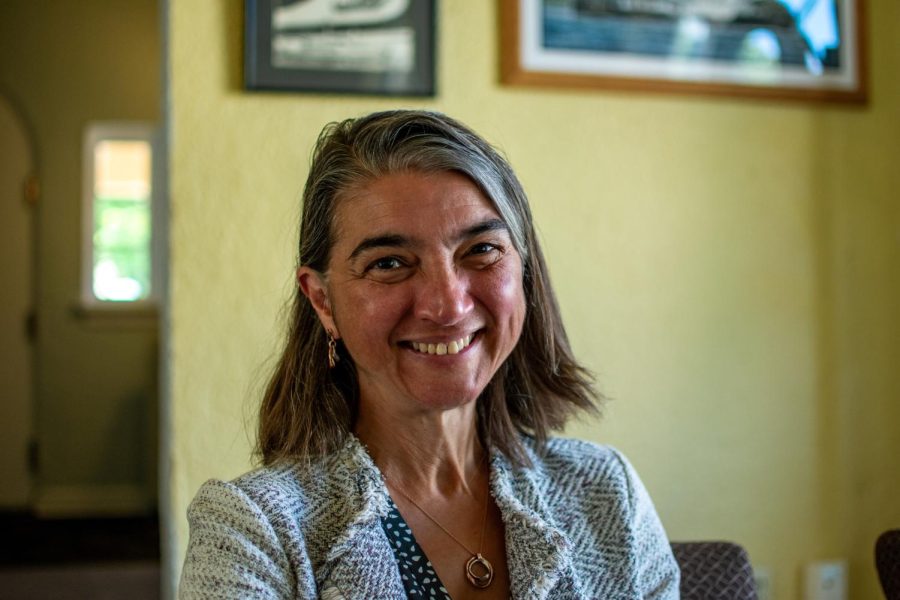OSU dean to co-lead decade-long ocean science committee
Dean of the College of Earth, Ocean, and Atmospheric Sciences Tuba Özkan-Haller smiles for a photo in the lobby of the College of Earth, Ocean, and Atmospheric Sciences Administration building on June 27th, 2023. Özkan-Haller was recently appointed as the co-chair of a national science committee, representing a major advancement for Oregon State University’s CEOAS program.
July 3, 2023
Oregon State University’s Tuba Özkan-Haller is tasked with leading a group of scientists on tackling the next decade of ocean science.
The 2025-2035 Decadal Survey Of Ocean Sciences is a committee that will help advise the National Science Foundation’s Division of Ocean Sciences on where to focus their funding during the next decade, according to the National Academies of Science, Engineering, and Medicine.
Scientists from colleges across the country will meet in Washington D.C. to discuss where the future of ocean science will be in the next few years.
Özkan-Haller, dean of the college of earth, ocean, and atmospheric sciences at OSU, will be a co-chair on this board and will be tasked with guiding the group to a consensus on their discussion.
“As a facilitator and co-chair, my job is really to help the group come to a consensus rather than insert my own thinking about where things should land,” Özkan-Haller said.
The board will meet twice this year. Their first meeting took place on June 21-22 while the second meeting will occur on Aug. 2-3.
These meetings are split up into a closed session and open session. The closed sessions cannot include anyone who is not on the board; however, the open session will be open for questions and input from other scientists present at the meeting.
Özkan-Haller predicts one of the topics to arise in the conversation is climate intervention. Specifically, if there is a way to use the ocean to bury carbon and if it is possible to do so without imposing negative impacts into the ecosystem.
“The ocean is a sink of carbon so is that an option? Can there be technologies that utilize the ocean in order to sequester, in order to bury carbon, (and) take it out of our atmosphere?” Özkan-Haller said. “Can we do that at scale? Can we do that without introducing negative consequences to our ocean ecosystem?”
While Özkan-Haller has chair position marks the first time OSU leads the board, OSU has been on the committee before. For the 2015-2025 DSOS, Alan Mix, a professor in the CEOAS at OSU was on the board as a committee member, according to the National Academies Press.
“I think the fact that somebody like me was asked to be the co-chair of a committee like this shows OSU’s leadership in this arena,” Özkan-Haller said. “OSU is a number three program in oceanography in the world and appointments like this, even though it’s a great feather in the cap for me personally, it really is a bigger indicator of the preeminence of our institution in this realm.”










































































































